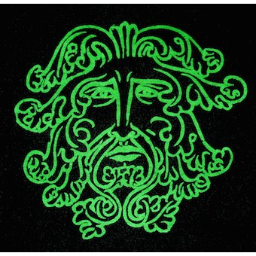In the week that science officially declared the Anthropocene some thoughts about about our real place in the order of things.
As we are born and grow so we gain in our awareness of our self as somehow unique. A boundary is experienced in the physical world and slowly we map its contours, The boundary between self and other.
Brought up through childhood in a social context we come to recognize that others really are a bit like us. We moderate our first impression of the primacy of self with a consciousness of our interconnectedness to family, extended family, village or tribe or community - these we experience directly. These others that we interact directly with take on significance and our relationships with them become part of our definition of self. John Donne's vision inhabits us.
Given the opportunity we also develop similar connectedness with the non-human world around us. Other living creatures and plants, even seemingly inanimate objects and geography, our sense of place. If we are lucky that too becomes part of the richness of our definition of ourself.
Meanwhile through stories and at school we learn of the wider world. We do not experience it directly, but we are taught to recognise its shadows. Beyond our direct experience human organisations emerge - the nation, the empire, intellectual (as opposed to the directly experienced) religious identity, the ideals, the philosophy with which we identify. All of this reinforces a notion that the world of human relationships is somehow special and separate from the non-human world.
We also may be taught about the non-human world, and to the extent that we have experiental knowledge of the world of animals and plants and stones this intelectual knowledge can add to and enhance our understanding of the world.
Sadly, at the same time, the organisation of society today conspires to disconnect us from non-human experience. We are impoverished in our connections to the immediate non-human environment. We start to see it as less important than us, of less significance. We fail to develop the ability to read it. We start to see it as threatening, a thing to be controlled and conquered as a measure of success.
We elevate ourselves, and human concerns, as being of greater significance than the world. In truth we have forgotten, or maybe never re-learned through direct experience after birth, that we are only a part of the world system - whether we call it mother, or gaia or god should matter not.
But today's monotheistic religions have united and elevated the pantheon of true gods - all things - as a single god-head in the image of man. Their God carries the self-importance of Man to claim dominion over all things. Everywhere we look we are guided that Man is the most significant thing. Initially Man in the form of a single God but eventually we find that that God is redundant, merely a proxy for Man. Ourselves as the Supreme Being.
Thus we like it, we feel important and significant. We can forget our knowledge of our true place in the scheme of things and revel in our self-belief as part of The Human Project.
Inside, however, there is a place where we know that this is not really so.
We know by experience that we grow as part of a larger system. We were all born of a mother whose being we shared. We carry genetic codes only a tiny fraction of which are unique to us as humans, never mind as individuals. We can look at the stars or the bees in a hive and we know that we have no significance to them. We may bask in their light, or share in their food, but only when we recognize our insignificance can we appreciate how we are connected with and dependent on them.
The symbiotic planet goes on without us as individuals, or even as a species.
The Anthropocene is nothing but hubris. We must embrace our insignificance in order to validate our future as part of the continuing ecological system of which we are a tiny part.


Comments powered by CComment